'Lapvona' by Ottessa Moshfegh
'What good was a life of struggle with no guarantee of heaven?'—Review #220
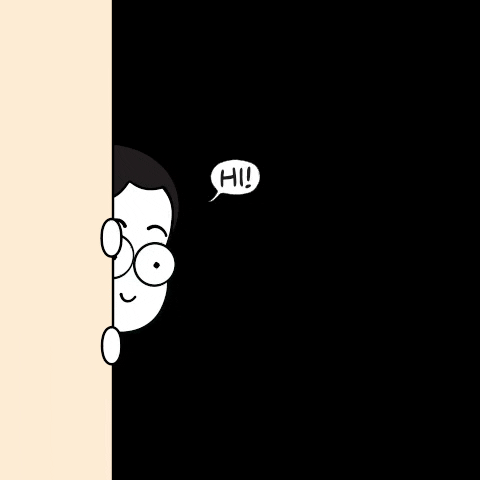
I am in a weird headspace where I can’t in good conscience recommend Ottessa Moshfegh’s latest novel, ‘Lapvona,’ but at the same time I think it’s absolutely essential. The book is a page turner but also a stomach turner, finds moral clarity in unapologetic depravity, and will, in time—mark my words—be regarded as one of the most important books of this moment, a taboo classic that more people will claim to have read than actually will have. But they’ll be easy to spot. You’ll see it in their eyes—glibness for the fibbers, sobriety for the perseverant—because to have read this book is to have survived it. You’ll see what I mean. You’ve been warned.
Here’s the cover:
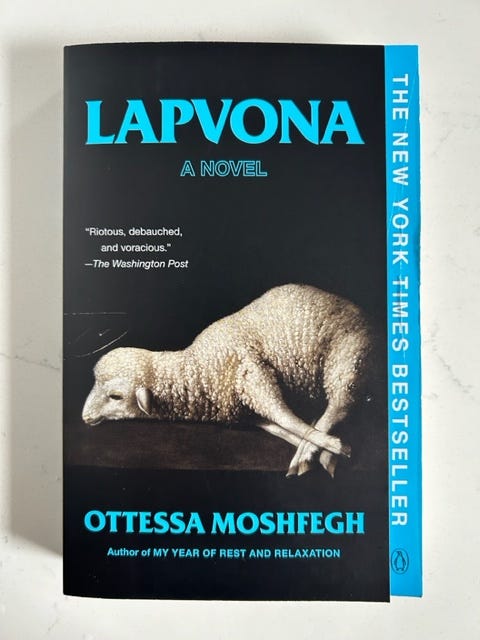
I wasn’t looking forward to ‘Lapvona’ even though I’ve read all of Moshfegh’s books going back to ‘McGlue,’ her debut novella. I loved ‘Eileen’ and ‘My Year of Rest and Relaxation,’ but ‘Death in Her Hands’ was a clunker. I was worried. Would ‘Lapvona’ be another? I heard rumblings about people not finishing it. Would I? And did my copy contain an ominous hint? I didn’t see it until I got home from the bookstore, but the cover has big razor slashes, as if whoever was unboxing the inventory went too deep with the cutter, like:

The novel is set during medieval times in a fictional and vaguely eastern European place called Lapvona. It follows Marek, a 13-year-old boy who’s both physically and mentally malformed due to his mother, Agata (who’s presumed dead), having tried to abort him and because his father, Jude (a lamb herder), beats him. Lapvona is ruled by a lord named Villiam, and it’s often raided by bandits. Shortly after an attack, Marek encounters Villiam’s son, a boy roughly his age named Jacob. Jacob is handsome, well dressed and wears shiny new leather boots that Marek says remind him of birds that live on cliffs nearby. Jacob demands to be shown these birds so he can kill one (he’s good at taxidermy). But no such birds exist, and when the pair get up the mountain, Marek throws a rock at Jacob, which he evades, but his impractical boots slip and he falls over the edge. He’s gruesomely injured landing on an outcropping below, and calls out to Marek for help. But Marek doesn’t help. Instead, feeling a mix of satisfaction and guilt, he watches Jacob struggle in his final moments. I was like:

Marek confesses to Jude, who retrieves Jacob’s body and takes it to Villiam’s opulent manor. Villiam loathes boredom and serious things like death. He demands constant food and entertainment, for instance, everyone who attends him must have a joke, riddle or dance prepared. He didn’t love his son and offers Jude a swap: Jacob’s corpse for Marek. So Marek is installed as Villiam’s son and Jacob is forgotten. As Marek and Villiam grow close, we learn that the lord controls and exploits the people of Lapvona through a two-pronged strategy. He’s in cahoots with the bandits, using them to keep the populace scared and in line. And he is tight with Father Barnabas, the local priest, a buffoon who dimly understands the religion he preaches, but puts God’s imprimatur on Villiam’s position and high living. When a severe drought hits Lapvona, killing all the crops and forcing people to eat all the livestock, Villiam and his retinue barely notice. They’ve diverted water from the mountains into a secret reservoir and have clandestinely stolen and hoarded foodstuffs. As the peasants starve, they turn to eating mud, dung and, eventually, each other. I wish I could unread the scene where a character coughs up a toe. Weeks later, I’m still like:

Remember, I warned you. Cannibalism, somehow, is not the most debased aspect in ‘Lapvona.’ In addition, there’s murder, as we’ve seen, rape, incest and people who nurse long after they should have stopped. There’s also physical violence (toward humans and animals), emotional cruelty and humiliation, and indifference to people’s basic humanity. There are no likable characters, no one to root for; everyone’s stupid, insecure, hostile and out for themselves. There are little inklings of hope in there, and there’s humor in some of the horror, but, as I mentioned up top, I can’t imagine handing someone this book and saying:

And yet, I think Moshfegh is up to something important. She offers a sharp critique of capitalism and religion, and how these things can rely on, and foster, an ignorant and complacent public. Her farcical outrageousness is meant to shock us out of our own stupor to think, is it really OK for the rich to hoard things? Is it right for religions to tell us how to think? Should our political climate be based on fear and anger? Although the story is set in the Dark Ages, I couldn’t help but think about its connection to today’s social media. Characters who see others looking good, or appearing to be living their best life, or poised for success, immediately feel bad about themselves and seek to bring others down. How many times have we seen that here:

Moshfegh might not be the first novelist to make these points, and her intense tactics definitely won’t work for every reader, but they’re still necessary. The world is dangerous and messy right now, and an authentic artistic response is to create work that is itself deeply messy and dangerous. I’ll be thinking about ‘Lapvona’ for a long time, even though I’ll be trying my best to forget it.
How it begins:
The bandits came again on Easter. This time they slaughtered two men, three women, and two small children. Some smelting tools were stolen from the blacksmith, but no gold or silver, as there was none. One of the bandits was injured by an ax wielded by the slain children’s mother—she smashed his left foot. Then he was restrained by neighbors and dragged to the village square, where he was beaten and put in the pillory. Villagers pelted him with mud and animal excrement until nightfall. Grigor, the dead children’s grandfather, was too bereft to sleep, so he got up in the night, went to the square, cut off the bandit’s ear with a garden knife, and flung it in a lemon tree laden with blossoms. ‘For the birds to eat!’ he yelled at the bleeding man and sobbed as he slunk away. Nobody could say what specific acts of horror this one pilloried bandit had committed. The rest of the bandits got away and took with them six geese, four goats, six wheels of cheese, and a cask of honey, in addition to the iron tools.
No lambs were stolen, as the lamb herder, Jude, lived in a pasture several miles from the center of the village, and he had his lambs penned and sleeping soundly that night as usual. The pasture was at the foot of a hill, on top of which sat the large stone manor where Villiam, Lapvona’s lord and governor, resided. His guards were in position to defend him should any menacing individual ever climb the hill. Between the echoing screams from the village, Jude thought he could hear the gut strings of the guards’ bows tighten from where he lay awake by the fire that night. It was not by chance that Jude and his son, Marek, lived in the pasture below the manor. Villiam and Jude shared a blood relation, their great-grandfather. Jude thought of Villiam as his cousin, though the two men had never met.
On Monday, Marek, age thirteen, walked to the village to assist the men in digging a trench to bury the dead. He wanted to be helpful, but cowered when the bodies were laid out on the thick grass of the cemetery and the men took up their shovels. The heads of the dead were covered only in thin cloths. Marek imagined that their faces were still alive. He could see their eyelashes grazing the fabric as a soft wind blew. He saw the outlines of their lips and thought they were moving, speaking to him, warning him to get away. The children’s bodies looked like wooden dolls, stiff and adorable. Marek crossed himself and retreated back to the road. The men of the village dug the trench easily without him anyway. Nobody cared that Marek had come and gone. He was like a stray dog that wandered in and out of the village from time to time, and everyone knew he was a bastard.
My rating:

‘Lapvona’ by Ottessa Moshfegh was published by Penguin Random House in 2022 and by Penguin Books in 2023. 304 pages. $16.74 at Bookshop.org.
Recent pickups:
I found ‘True Grit’ by Charles Portis at the bookstore in the Montauk Library. It wasn’t until I got it back to our room that I discovered it was a movie tie-in edition, which I normally avoid like the plague. Oh well, at least this one has a subtle design, and it was a treat to discover Donna Tartt’s afterword. I also ordered a copy of Katya Apekina’s upcoming novel, ‘Mother Doll,’ which is due out in March, and placed a library hold on Julia Fox’s memoir, ‘Down the Drain.’ Books on GIF does not solicit review copies. We feature books we purchase at independent bookstores around New York City or on our travels, or were borrowed electronically from the Brooklyn Public Library.
What’s next:
Before you go:
ICYMI: Review #219
Read this: I miss ‘Calvin and Hobbes.’ This piece in The New Yorker made me nostalgic for the comic strip I loved to read as a kid, as well as interested in reading new work by its creator, Bill Watterson.
Read this, too: During our quick trip to Montauk, Donna read to me excerpts from this Grub Street article about New York Times book critic Dwight Garner. I was excited to learn that he and I share similar breakfast habits and that he shares Donna’s passion for collecting coffee mugs. He’s also a member of a fascinating group called the Organ Meat Society. Maybe one day the cachet of Books on GIF will be enough to allow me membership? Until then, I’ll look to stash some muffulettas in the freezer, too.
If you enjoyed this review:
Thanks for reading, and thanks especially to Donna for editing this newsletter!
Until next time,
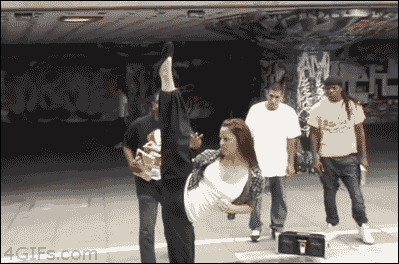
MPV





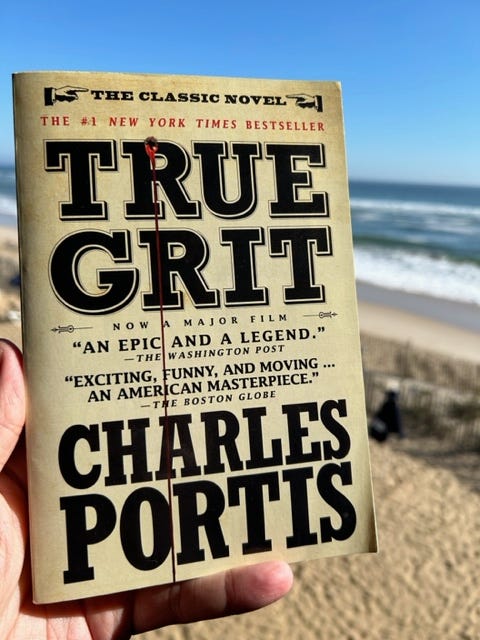
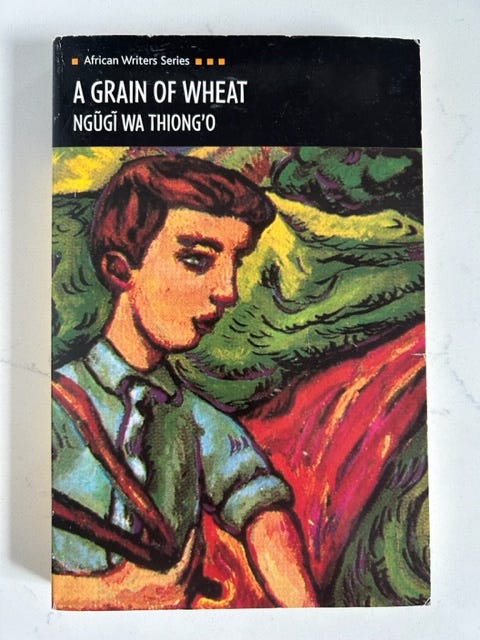


I can't believe I forgot to mention this in my review, but Sarah, who I'm connected to on GoodReads, summed 'Lapvona' up perfectly: 'it’s not the novel we want, but it feels like the one we deserve.' 100 percent correct!
thanks for the honest review on Lapvona. I guess I need a year to hype myself up to read this. 😂 I just finished Down the Drain and wow it’s a whole other world.